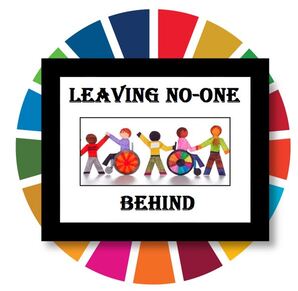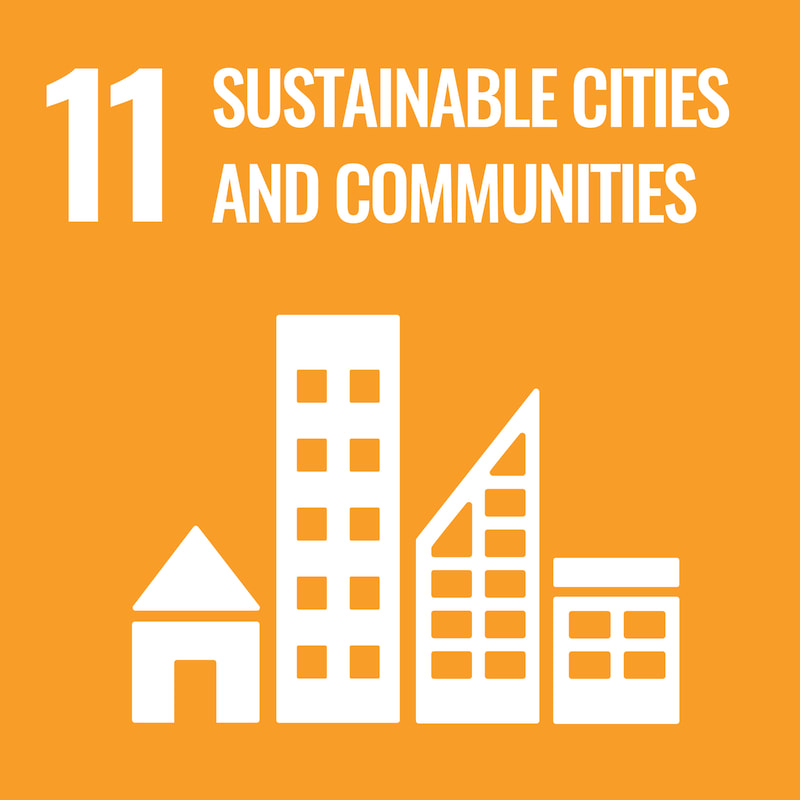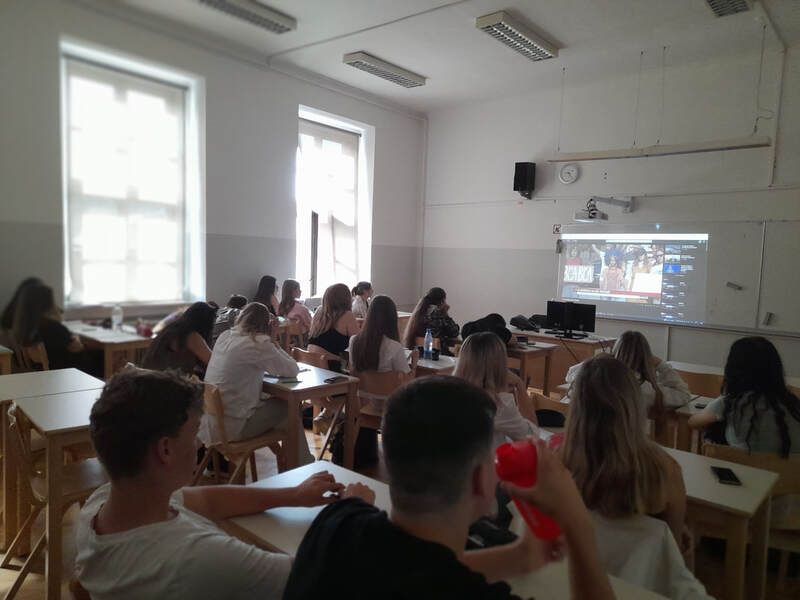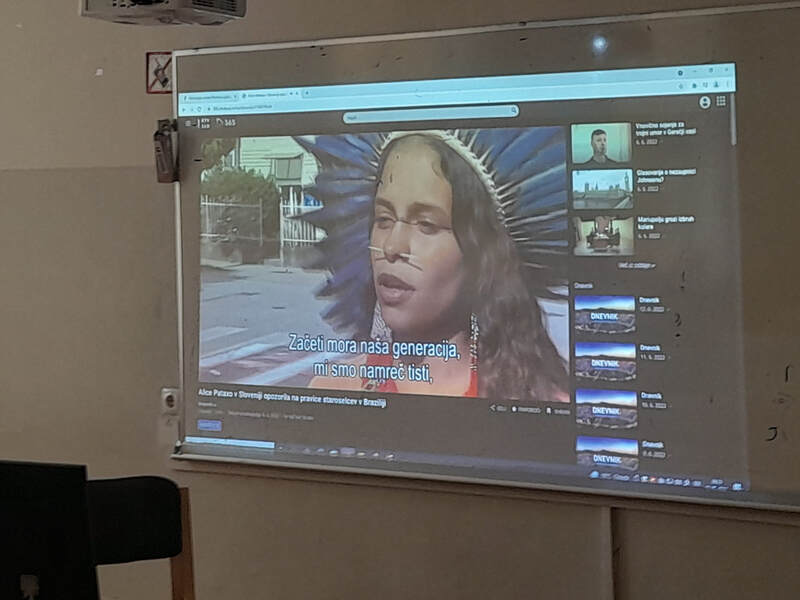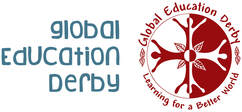Big Idea:
In Europe, we often talk about sustainable cities and communities. The best examples of sustainable communities are indigenous communities, which are often under attack by governments, multi-nationals or big farmers grabbing land and destroying their culture.
This short scheme of learning aims to highlight the vision and leadership of young indigenous activists, like Alice Pataxo, who recently visited Slovenia.
This short scheme of learning aims to highlight the vision and leadership of young indigenous activists, like Alice Pataxo, who recently visited Slovenia.
Type of Activity:
These activities are designed to give young people an understanding of indigenous people and the challenges they face ... and to find out solutions to empower them.
The lessons were inspired by the visit of young Brazilian indigenous leader, Alice Pataxo, to Slovenia. It supports young people to plan and take social action for themselves, deepen understanding of historical and modern day issues and challenge stereotypes about indigenous peoples.
The lessons were inspired by the visit of young Brazilian indigenous leader, Alice Pataxo, to Slovenia. It supports young people to plan and take social action for themselves, deepen understanding of historical and modern day issues and challenge stereotypes about indigenous peoples.
Who is it for?
Ages 11 to 18.
What do I need?
|
Photos, computer with access to internet, video resources on the internet, etc, presentation - Indigenous Peoples (Alice Pataxo)
m.facebook.com/dw.stories/videos/indigenous-influencer-fights-prejudices/590086335643015/ |
Indigenous Peoples Quiz
create.kahoot.it/share/indigenous-peoples-of-the-world/da2c5729-fc7f-4ce1-a1d3-6c29254f1bb2 |
| ||||||
YouTube videos - You can see a subtitled translation by clicking on the gear symbol at the bottom right of the video, then clicking on Subtitles/CC, followed by auto and then choosing the language desired from the dropdown list.
How long does it take?
3 x 45 minutes
Introduction
Stimulus: Photos of various foods and objects from Americas, in order to encourage students to discuss what they see and think about the photos, where these things come from, etc.
Introduce topic of indigenous people: Allow students the time to voice their opinions on indigenous people and how to call them (in Slovenian language there are different words denoting indigenous people).
Photos: Include photos of Alice Pataxo.
Quiz: Link to an online quiz is included in resources section.
Students write words connected with indigenous people/Americas and discuss them. Explain to them that without indigenous people's crops, we would starve today (maize, potatoes, tomatoes, cocoa, sweet peppers, chilli, etc).
Explain to students that it is important to show respect towards indigenous people for all their achievements.
As the majority of indigenous people are now poor and often left behind in all areas of life, it is of the utmost importance to look and explain the causes of their poverty (genocide, colonisation and theft of their land, that is unfortunately still ongoing). Discuss the role of young indigenous people, trying to protect nature and culture of their people.
Introduce topic of indigenous people: Allow students the time to voice their opinions on indigenous people and how to call them (in Slovenian language there are different words denoting indigenous people).
Photos: Include photos of Alice Pataxo.
Quiz: Link to an online quiz is included in resources section.
Students write words connected with indigenous people/Americas and discuss them. Explain to them that without indigenous people's crops, we would starve today (maize, potatoes, tomatoes, cocoa, sweet peppers, chilli, etc).
Explain to students that it is important to show respect towards indigenous people for all their achievements.
As the majority of indigenous people are now poor and often left behind in all areas of life, it is of the utmost importance to look and explain the causes of their poverty (genocide, colonisation and theft of their land, that is unfortunately still ongoing). Discuss the role of young indigenous people, trying to protect nature and culture of their people.
What next
Watch video of Alice Pataxo's speech from November 2021. Encourage students to voice ideas on how we could support indigenous people. For example, invite their representatives to come to Slovenia and speak about their challenges to organisations and media - like Alice Pataxo recently did in Slovenia - or stop buying products from countries that don't respect indigenous rights, land and culture, etc.
Students to talk about and research indigenous peoples. Students can read some books or articles about indigenous people, listen to their music or watch videos about them on YouTube. Students can visit Slovenian NGOs, which are active in the field of indigenous people and they can visit the collection of objects made by indigenous people in the Slovenian Ethnographic Museum. They can establish contact with indigenous representatives such as Alice Pataxo.
Students can decide on actions they can take to support indigenous peoples and raise awareness of their situation. This could be by following indigenous influencers on social media, creating their own campaign through artwork, poetry or letter writing. They could also fundraise to collect money for some projects for indigenous people or projects run by indigenous people themselves.
Allow students ideas to be paramount and help facilitate these ideas, building on the strengths and skills of the students.
Students can decide on actions they can take to support indigenous peoples and raise awareness of their situation. This could be by following indigenous influencers on social media, creating their own campaign through artwork, poetry or letter writing. They could also fundraise to collect money for some projects for indigenous people or projects run by indigenous people themselves.
Allow students ideas to be paramount and help facilitate these ideas, building on the strengths and skills of the students.
Finally
Plenary Questions: Did travel of Alice Pataxo to Slovenia help? Has Slovenia become a voice for indigenous people? What can ordinary Slovenian people do to help Alice Pataxo and other indigenous leaders to protect nature and indigenous way of life?
Extension Work : Students visit the collection of objects made by indigenous people in the Slovenian Ethnographic Museum. Students visit Focus NGO, which invited Alice Pataxo to Slovenia. They can fund raise and write to Alice Pataxo, in order to support her work. Invite another indigenous representative in Slovenia or some Slovenian/international expert on indigenous issues to give a talk based on challenges indigenous people face.
Extension Work : Students visit the collection of objects made by indigenous people in the Slovenian Ethnographic Museum. Students visit Focus NGO, which invited Alice Pataxo to Slovenia. They can fund raise and write to Alice Pataxo, in order to support her work. Invite another indigenous representative in Slovenia or some Slovenian/international expert on indigenous issues to give a talk based on challenges indigenous people face.
Find out more
Indigenous Influencers: Alice Pataxo - eacpress.news/2022/05/02/indigenous-influencers-alice-pataxo/
Indigenous Peoples - A Teachers Guide - globaldimension.org.uk/articles/indigenous/
Mining indigenous lands in Brazil infographic - www.statista.com/chart/27940/mining-area-in-brazil-indigenous-lands/
Mongabay environmental news portal - www.mongabay.com/
Earthrise Website article - www.earthrise.studio/reads/why-indigenous-wisdom-is-an-antidote-to-the-climate-crisis
Indigenous Peoples - A Teachers Guide - globaldimension.org.uk/articles/indigenous/
Mining indigenous lands in Brazil infographic - www.statista.com/chart/27940/mining-area-in-brazil-indigenous-lands/
Mongabay environmental news portal - www.mongabay.com/
Earthrise Website article - www.earthrise.studio/reads/why-indigenous-wisdom-is-an-antidote-to-the-climate-crisis
